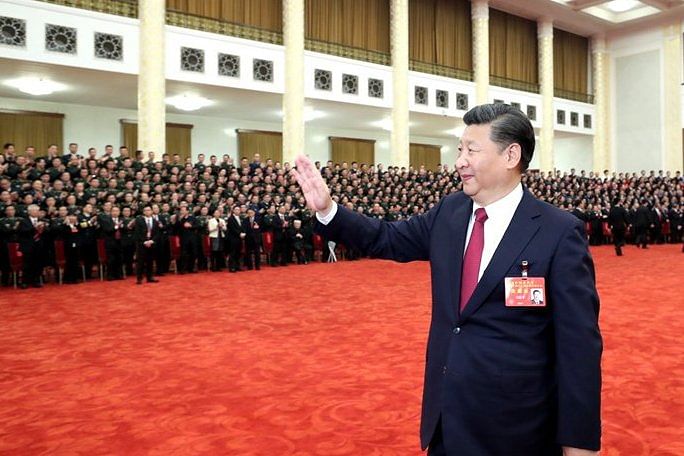China’s strategic momentum is truly startling, and it is only a matter of time before the US draws a ‘new normal’ to define its relationship with it.
Like the US, albeit with different strategic objectives, India too grapples with the enormous challenge of deterring and engaging China on multiple fronts. ‘Engage’ and ‘manage’ are two terms I hear all the time – in lectures, seminars, and discussions. At the end of the day, all it means is: how do you retain a power differential vis-à-vis China?
I reckon this is a losing battle, because China’s strategic momentum is truly startling, and it is only a matter of time before the US draws a ‘new normal’ to define its relationship with the People’s Republic.
How to assess the policy of engagement?
One of the signature lecture series at the Harvard Asia Center this term is the one on China, called ‘Critical Issues Confronting China’. The topics that will be covered range from strategies to engage with China, press and internet freedom, US policy towards China under Trump, film making in China, and so on.
The opening lecture was by Orville Schell, Director of the Center on China-US Relations of the Asia Society in New York. A former Dean of the Graduate School of Journalism at the University of California, Berkeley, and as a distinguished journalist with long experience of reporting from war zones in Indo-China, Taiwan, and China, his theme was ‘How Should We Assess the Policy of “Engagement”’.
The first of many robust takeaways from the talk was that engagement with China in the era of Xi Jinping is getting tougher by the day, as China is keen on playing by new rules, rather than time-tested ones; rules it says have outlived an era of declining Western dominance.
With punitive and coercive action, mainly against perceived adversaries and notional competitors on the rise, China is fast exhausting its goodwill in its near-abroad, and as Schell very succinctly put it, “wants to be respected without acting respectfully”.
Even as President Xi attempts to woo Africa, there is disquiet there too, against the Chinese methodology of creating infrastructure with its own equipment, materials, and labour. Denying employment opportunities to locals and stifling the growth of local infrastructure companies is emerging as a contentious issue, just as the mushrooming of Chinese colonies points at ‘neo-colonialism’ of a different kind.
Just as China is investing heavily in multiple sectors in the Indian economy and causing some concern among regulators, cyber security experts, and the national security establishment, US President Donald Trump recently blocked a Chinese takeover attempt of US chipset maker Lattice Semiconductors.
Diversification of acquisitions in the high-tech sector is another key strategy that is seeing China quietly acquire robotics companies in Germany, among other high profile investments in Europe. It is also interesting to learn that Chinese media companies are buying up radio and TV channels in the most unlikely states of the midwest and setting up Confucius learning centres across the US, as part of an information offensive that is as startling as it is effective.
Schell ended his talk by discounting any challenge to Xi’s leadership over the next five years, and highlighted a disconnect between the middle class and the political elite that is working to the advantage of the Chinese Communist Party. The reason, he argued, was quite simple.
For thousands of Chinese students who study in the West and return to work in China, the prospect of continuing life with the same material comforts they have got used to in the West is far more alluring than any ideological or political contradictions they face.
This influence has permeated across segments of society, and even those who do not get an opportunity to study or work in the West aspire to lead a life of material comfort and modest wealth, even at the cost of surrendering some personal freedom to the state.
I will sign off with a stark observation. In a university town teeming with Indian students, scholars and faculty, I was among two or three Indians in the over 100-strong audience that had a large Chinese, Japanese, and Korean representation. Does that say anything about our desire to understand China?



